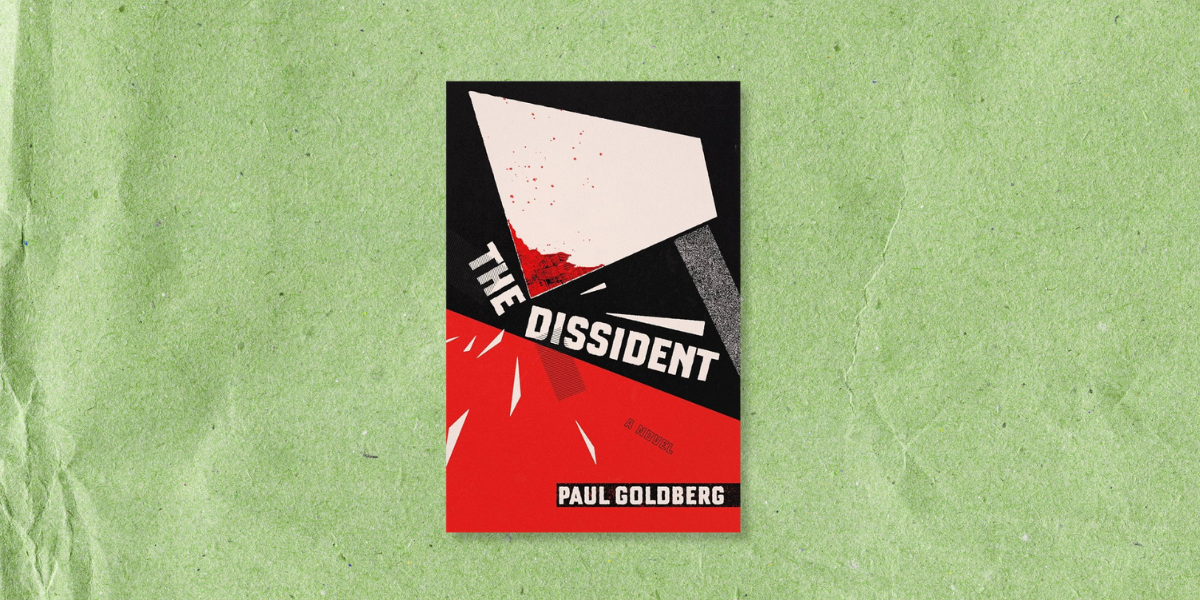Books
Paul Goldberg’s ‘The Dissident’

The Dissident
By Paul Goldberg (Farrar, Straus and Giroux)
In The Dissident, Russian-born American writer Paul Goldberg provides a thrilling, unpredictable and very funny exploration of intrigue and survival in the Soviet Union. At once a love story, diplomatic encounter and murder mystery, this novel is a rollicking, if overstuffed, multi-character satire.
Goldberg immigrated to the United States as a child in 1973. He is the author of two nonfiction books on the human rights movement in the Soviet Union and two well-received novels, The Château and The Yid. In The Dissident, Goldberg pays homage to the greats of Russian literature—Anton Chekhov, Alexander Pushkin, Mikhail Lermontov and others—as he takes readers through Moscow of the 1970s and the lives of disparate Jewish refuseniks who know little of Judaism but sought freedom to practice and to emigrate.
The book begins in January 1976. On his wedding day, Viktor Moroz, a translator and reporter who works with English-speaking journalists, stumbles on a murder scene: two men in a lovers’ embrace axed to death.
One of the victims was an American government official, possibly with the CIA, and the other was a samizdat (underground) poet turned black marketeer and refusenik. The KGB spots Viktor fleeing the murder scene and detains him.
Lydia Ivanovna, a KGB agent who describes herself as Viktor’s “curator,” gives the journalist a choice: Find the murderer or be put on trial for the killing. And he must uncover the truth in nine days, before Secretary of State Henry Kissinger arrives in Moscow.
But before he searches for clues, Viktor must get married.
Part of a group of refuseniks whose applications to leave for Israel have been denied, Viktor met his bride, Oksana Moskvina, an English teacher and clandestine publisher, outside the Moscow Choral Synagogue the previous year on the first night of Hanukkah. They set their wedding for January 13 to coincide with the celebration of the Great October Socialist Revolution, the most important date on the Soviet calendar.
Their wedding is one of the funnier interludes in the book. While both Viktor and Oksana want a Jewish celebration, neither they nor their guests know anything about Jewish weddings.
Fear not. One of the guests promises to bring three old men who recall weddings in the shtetlech. The old men—called the alterkakers—“will take the ritual through the paces, mumble the right blessings in Hebrew, sing something in Yiddish when it’s over.”
For their reward, they are invited to the wedding feast, a table groaning with Soviet treats such as jellied meat, pickled cabbage, sardines, mushrooms and eggplant caviar (“Eggplant caviar,” the author wryly notes, is “a delicacy that presents no threat to unborn sturgeon.”)
To help solve the double murder, Viktor turns to his ragtag dissident refusenik community. The group includes a hard-drinking sculptor and a Russian priest of Jewish heritage as well as a visiting American Jewish retiree, Norm (Nuchem) Dymshitz, enlisted by his son, Madison, the Moscow bureau chief of an American newspaper, to aid the refusenik cause.
Born in Poland, Norm becomes a focus of the novel. He wants to relive his World War II heroics, during which he escaped from a concentration camp and fought as a partisan in the Russian forest alongside Oksana’s father.
This engaging thriller, with its diverse cast of characters, dramatizes the longing of Soviet Jews for escape and the surreal repressions of the Soviet state. And if there are any parallels to life in Russia today under Vladimir Putin, well….
With his zest for Russian culture, Goldberg offers a glimpse of a pivotal period in Soviet history flavored with a generous dollop of vodka and smoked fish.
Stewart Kampel










 Facebook
Facebook Instagram
Instagram Twitter
Twitter
Leave a Reply